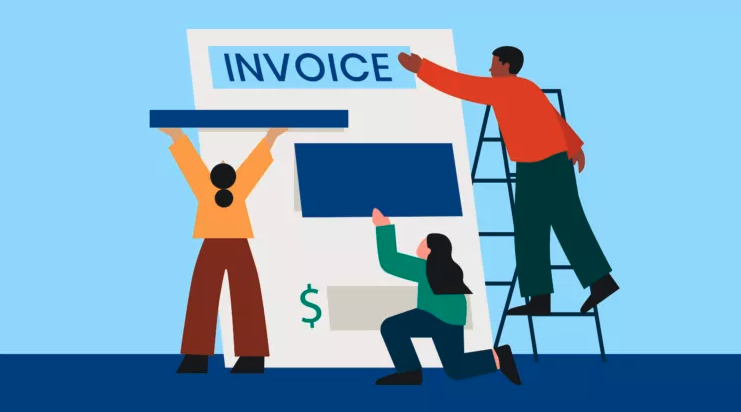If a free tool can make your life as a solicitor or law firm office manager easier, you should jump at the opportunity to use it. And a tool that provides free accounting software for solicitor is especially valuable.
After all, you didn’t study the law to work on cash flow statements and financial projections. It’s daunting to jump into the world of accounting when you didn’t go to business school. In fact, according to the 2021 Legal Trends Report, only 7% of lawyers felt that law school prepared them to run a business.
No one expects experts in the law to be experts in bookkeeping. Which is why we created this round-up of the best accounting software for lawyers you can try for free.
Do law firms hire accountants?
Accountants play an integral role in every business—law firms are no different. Legal accountants often prepare financial statements, help with forecasting, and record expenses. In short, they help maintain a law firm's financial information.
Read more: How to Optimise your Law Firm Invoice Process [with Templates]

Why accounting software for solicitors is important
As a lawyer, utilising technology specifically created for the legal industry will save you time and money, especially when it comes to accounting. Bookkeeping mistakes can be costly to your business and reputation. While having a basic understanding of accounting is essential for every business owner, legal accounting software can do much of the heavy lifting. Legal accounting software is especially useful with legal accounting to ensure you stay compliant with industry regulations.
The good news is with affordable options, legal accounting software doesn’t have to undermine your law firm revenue. Not to mention, when used in tandem with law practice management software, accounting software for lawyers can actually help your law firm generate more revenue.
Five things to prioritise when testing free accounting software for lawyers
While it’s always a good idea to try before you buy, your time is valuable. Follow our tips below to ensure you trial the best accounting software for lawyers for your firm:
- Basic accounting functionalities: While it might sound obvious, it’s critical to prioritise the specific features your firm needs to track financial transactions accurately. The basics include general ledgers, charts of accounts, invoicing, account reconciliation, and accounts payable. Bonus points if it offers more advanced financial reports.
- Billing system: It’s rare to find accounting software for solicitors with an intuitive billing system. In most cases, given the number of bills leaving your firm, most solr practitioners and firm owners will benefit from investing in separate legal billing software which can integrate with accounting software. If you’re uncertain, here’s how to decide if legal billing software is worth the investment.
- User-friendliness: If it’s not an intuitive application to use, chances are, you won’t incorporate it into your regular workflow. Do your investigating and only consider software that has rave reviews from other legal professionals. Reach out to those in your network for their recommendations.
- Matter management: Finding free accounting software for lawyers that offers matter management capabilities might be challenging. It’s worth considering investing in law practice management software that integrates with accounting applications.
- Integrations: Invest your time in testing accounting software for lawyers that offers integrations with law firm management software. This way, you can sync your financial records with your firm operations. For example, the Clio and Quickbooks Online integration allows users to effortlessly export transactions from Clio and import them into QuickBooks desktop.
Learn more about legal accounting for lawyers in our post, Optimising Accounts Receivable Collection: Top Strategies for Speedier Results.
You may like these posts
Accounting software for lawyers—try these apps for free
Trialling a free application is a low-risk way for sole practitioners and small firms to get acquainted with different accounting software for lawyers. Of course, the applications explicitly built with lawyers in mind—those which offer integrations with practice management software—will likely yield the best return on investment for your firm. Below are three options for accounting software for lawyers—all of them offer free trials.

QuickBooks Online
QuickBooks Online offers a free trial of their accounting software for lawyers. Connect your contacts, edit invoices, receive payments, and add credit notes directly in Clio, with all updates automatically synced to QuickBooks Online. Say goodbye to duplicate data entry. QuickBooks Online easily integrates with Clio.

Xero
Automatically sync client invoices and expenses between Clio and Xero. When you create an expense in Clio, it will appear in Xero. Any changes to an invoice’s status in Clio will be instantly reflected in Xero as well. They also offer a free trial. Xero also integrates with Clio.
Bonus: Clio Manage integrates with all of the above

The incentives to use free accounting software for lawyers are clear: You’ll save time and money with additional resources to provide the best client-centred experience at your firm. You can take your accounting processes to the next level by selecting free accounting software for lawyers. Especially when using one that easily integrates with leading practice management software like Clio Manage.
Try Clio for Free
Clio works with your accounting software to help you manage your firm’s profitability, compensation, financial health, and more.
A better client experience
The connection between a smoother client-centred experience and accounting software for lawyers might not seem obvious at first. However, the more insight you have into a client’s particular case, the better equipped you are to support them. For example, think of their invoice as a clue. Let’s say client X hasn’t paid their invoice even though you’ve sent it to them three times. With accounting software for solicitors, this jam in the payment process is easy to detect. And your client could also be stressing over their ability to pay. Now, because you have this information, you can check in with your client and offer them an alternative payment arrangement to support their ability to pay for legal services.
Without accounting software for lawyers, it’s easy to see how the above unpaid invoice could have gotten lost or forgotten. And while there are always ways to enhance your law firm billing process, utilising accounting software for lawyers should be an obvious first step.
Technology allows you to help more clients
Free accounting software for solicitors allows you to save time and scale your firm by providing you with all of your firm’s billing activity. And when you select an application that was built specifically for lawyers, you avoid the overwhelm of daunting spreadsheets and features that aren’t designed for legal professionals. If it can make your billing more efficient while providing clients with a better experience, it’s well worth the investment.
Improving payment collections in your law firm
Your firm is putting in the work and sending out bills promptly—but are you paying attention to your payment collection process?
Download this free guide to discover how to assess your firm’s payment collection performance, implement effective strategies to enhance your law firm’s collection practices, and leverage Clio’s features to optimise payment collection even further.
Guide to Improving Payment Collections in Your Law Firm
We published this blog post in August 2024. Last updated: .
Categorized in: Legal Accounting
Explore AI insights in our latest report
Our latest Legal Trends Report explores the shifting attitudes toward AI in the legal profession and the opportunities it brings for law firm billing, marketing, and more.
Read the report






